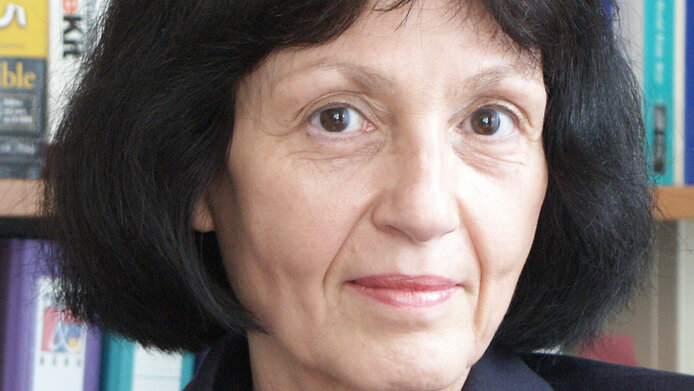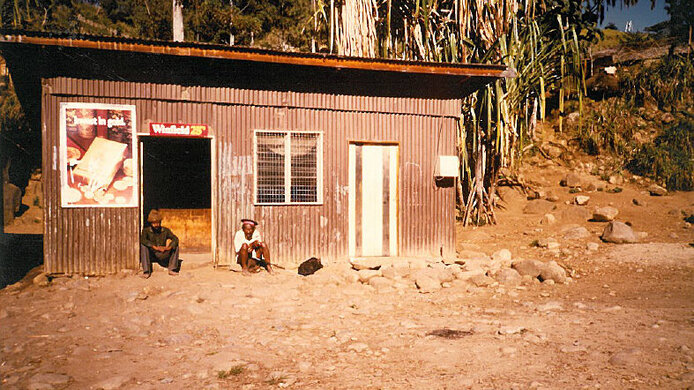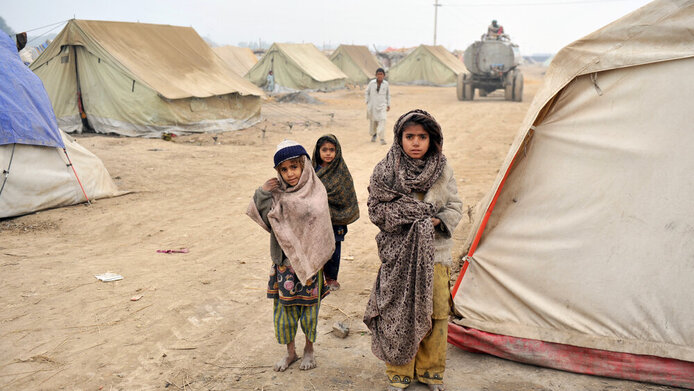Enemy stereotypes: collective problem-solving

“What exactly is a well-integrated society? What framework do we need for a society? What major social problems and what solutions do we have?” Since these are the big questions she has been dealing with for a long time, Hilde Weiss, Professor at the Institute of Sociology, University of Vienna, decided to opt for this speciality after completing her school education. In her scientific work Hilde Weiss has focused on subjects like ethnic minorities, immigration, anti-Semitism, national stereotypes, and political sociology. Just recently she was able to complete a research project supported by the Austrian Science Fund FWF, entitled “Religious orientations and lifestyles of Muslims in the generational change”. She conducted so-called family conversations with 400 parent-child couples. The parents were not born in Austria, and the children had attended an Austrian school from the age of six years onward.
A marked value shift
Compared to the secular mainstream of Austrian adolescents, religiosity is passed on to a much greater extent among immigrants – especially among Muslims. Hilde Weiss was surprised to note the marked change between generations with regard to norms like equal rights for both sexes. “There is consensus on the fact that women are entitled to education and men should be more active at home,” says the sociologist. She cites an example, “Men are generally more conservative than women, but there is a marked value shift in favour of even more conservative fathers. As regards other norms, such as the attitude towards sexuality, the transformation is not so pronounced. Here we find sexual and moral values such as those extant in the 1950’s in Austria,” says the sociologist, speaking about the results of her research.
The versatility of sociology
Hilde Weiss, now 66 years old, attended a girls‘ high school in Vienna and received a high level of general education in the humanities. A variety of political and social topics were discussed at these classes. This was the foundation of her interest in those questions which eventually led her to sociology. She benefited greatly from the comprehensive curriculum, says Weiss. At the time her diploma examinations were held by lawyers and economists. “I am aware of the importance of the fundamental norms, as laid down in the Constitution, for society, and what Keynesian economic policy means,” she explains. She misses such diversity today, says the sociologist. “The new design of the Faculty has partitioned off the specialties from each other,” says Hilde Weiss. Economics, for instance, is no longer an elective subject. From her point of view, sociology is not clearly delineated from ethnography. “In sociology we have a much wider spectrum of methods. No method says it all.” Besides, the sociologist would like to see more nation-specific research being done.
Political education
Hilde Weiss is disenchanted and sceptical about democracy in the specific Austrian context. “In my view, Austrian history has always had to deal with its legacy of creating enemy stereotypes as a collective problem-solving strategy.” One of the reasons for being disenchanted with democracy, according to her, is the fact that “political education” has been thinned out. “Sociology should be taught in secondary schools and high schools so that students learn to view things in perspective. Many conclusions have been drawn and much has been discovered; these discoveries should be integrated into education,” says Weiss. The most important topics to be incorporated in such teaching, says Hilde Weiss, are questions like: What is the value of democracy and why do we dislike leaders and simple programmes? Why can society not be explained easily? What does inequality mean and what are its consequences? What society could be referred to as a good society? “A good society, for instance, would be one with very little crime, few prisons, few physical and mental diseases. The Scandinavian society ranks very high with regard to these factors, the USA low, and Austria in the upper middle range,” explains Weiss.
The “battlefields”
Hilde Weiss’ entry into the world of science was a logical step. She pursued her research with fervour. She was always focused on what she was doing, never on her career. “My career developed of its own accord. The fact that one job or the other came my way was pure coincidence.” The FWF played a key role in this process. “Also because it is the most renowned research promotion fund that I knew, with the most transparent decision-making procedures,” says the scientist. What one needs in the “battlefield” of science? “Discipline, the willingness to face combat, and a thick skin, because you’re criticized all the time,” says Hilde Weiss. Her work is her passion. Therefore she feels sorry for today’s students. “They are not able to tackle their work in depth. Rather, they have to deliver results fast. Deadlines are getting shorter day by day. Existential insecurity is growing. This turnover orientation is doing harm to science,” says the sociologist regretfully.
Hilde Weiss is a Professor at the Institute of Sociology, University of Vienna. Her research projects are focused on highly topical themes like the integration of young immigrants in Austrian schools, stereotypes of ethnic groups in Austria, anti-Semitism, conflict perception, notions of justice in the social environment, and the evolution of poverty in Austria.
Related Topics
Project Presentation: Education: Children of Turkish migrants in Austria are more disadvantaged than in other countries, June 25th, 2015
FWF-Project: Living in Two Worlds - Second-Generation Children of Foreigners, 2003







